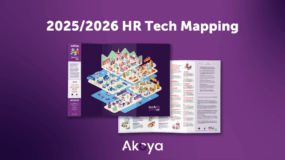Employee Experience may not be new, but it has become essential

The concept of Employee Experience has been widely promoted in recent years as companies have realised how strategic it is to improve the experience of their employees in order to ensure their retention, engagement and therefore their performance.
After working with a number of companies on this topic, we thought it was important to address the main issues and give you the keys to take action.
The labour market is experiencing a new phenomenon, which started in the United States last year and is now spreading to other countries like France. This phenomenon, known as the Great Resignation, involves a significant proportion of employees resigning from companies, without necessarily having found or even looked for another job.
Many articles report on this phenomenon, but very few examine its roots: why this sudden change, and especially why now?
The crisis as the accelerator of the Great Resignation
The health crisis did play a role in this. It has caused employees to distance themselves from their company on various levels:
– Geographical, by asking employees to work from home;
– Social, by limiting informal interactions between employees;
– Time-based, by introducing more asynchronous work within the teams.
This step back has given employees the opportunity to reflect on the deeper reasons why they belong to the company. Who hasn’t asked themselves during those long months of lockdown: Do I really work for a company that suits me?
Experience as a new currency
This collective questioning has led to an increased awareness of the real priorities that motivate an employee to stay within a company. The contractual relationship of working for a good salary is no longer enough to attract and retain an employee. Glassdoor even tells us that company culture is 10.4 times more likely to predict an employee’s departure than salary!
Today, employees expect to have an experiential relationship with their company, i.e. to have a satisfying experience through all the professional or informal interactions they have on a daily basis. But if salary is no longer the main weapon for companies to compete in the war for talent, they must rethink their approach by considering experience as a new spearhead allowing them to differentiate themselves from their competitors.
Putting Experience back at the heart of the stakes: a not so new idea
Experience has thus become the new currency of the labour market. However, this phenomenon did not start with the crisis. Two years ago Akoya published a white paper in collaboration with mature companies on the subject of EX in order to provide less mature companies with a concrete methodology to improve their Employee Experience.
The crisis has not created this phenomenon, but it has reinforced the gaps between companies that were already proactive on the subject and those that were not aware of its importance, or even of its existence. The latter are becoming aware of the urgency to act: according to Parlons RH, 70% of companies that have not taken initiatives to improve their EX are considering doing so in the medium to long term.
The need to help companies move forward with Employee Experience
Knowing that the subject has become essential is good, having the keys to act effectively is better. Supermood, which has also had the opportunity to support many companies on the subject, shares this observation and we have decided to act together to help companies adress the employee experience topic.
During a webinar dedicated to the subject on March 8th (in French), we will discuss with Kevin, CEO of Supermood, several good practices and inspiring cases that you will soon find formalised in a new white paper co-authored on the subject… Stay tuned!
Importantly, improving the Employee Experience in companies has become essential in an increasingly competitive labour market, with ever higher expectations from employees.
The post-crisis period must therefore be seen as an opportunity to take in-depth action on the subject – this will require the involvement of all the company’s stakeholders to understand where and how they can act. In the end, this will enable those around them to have the best possible experience on a daily basis.
Maxime Chevallet
Senior Manager




